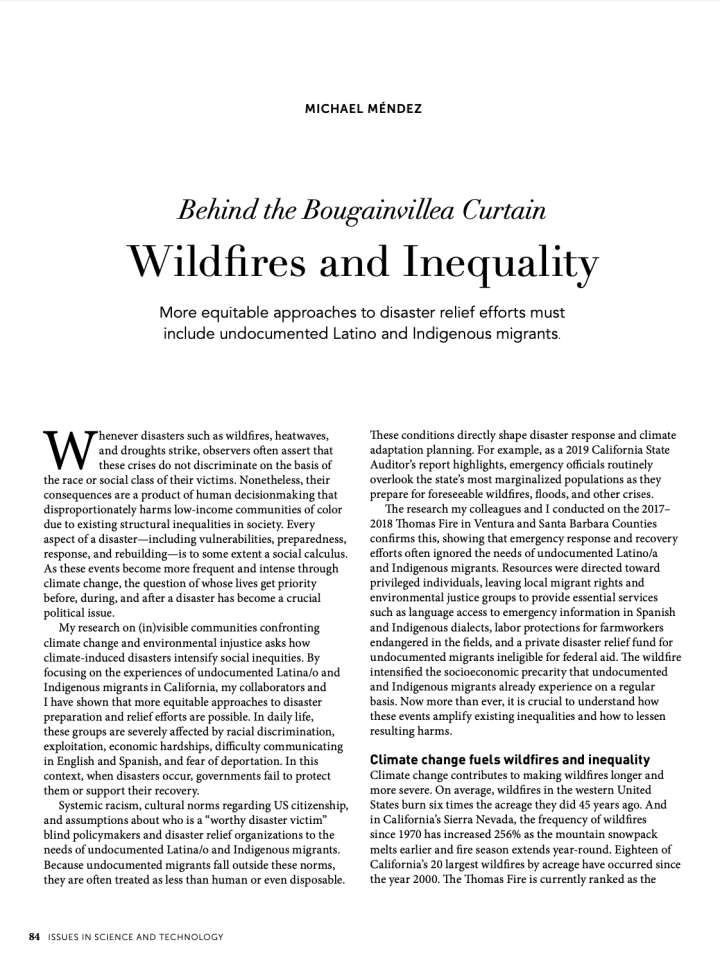Behind the Bougainvillea Curtain: Wildfires and inequality
This research on (in)visible communities confronting climate change and environmental injustice asks how climate-induced disasters intensify social inequities. By focusing on the experiences of undocumented Latina/o and Indigenous migrants in California, the research has shown that more equitable approaches to disaster preparation and relief efforts are possible. In daily life, these groups are severely affected by racial discrimination, exploitation, economic hardships, difficulty communicating in English and Spanish, and fear of deportation. In this context, when disasters occur, governments fail to protect them or support their recovery.
The research conducted on the 2017– 2018 Thomas Fire in Ventura and Santa Barbara Counties show that emergency response and recovery efforts often ignored the needs of undocumented Latino/a and Indigenous migrants. Resources were directed toward privileged individuals, leaving local migrant rights and environmental justice groups to provide essential services such as language access to emergency information in Spanish and Indigenous dialects, labor protections for farmworkers endangered in the fields, and a private disaster relief fund for undocumented migrants ineligible for federal aid. The wildfire intensified the socioeconomic precarity that undocumented and Indigenous migrants already experience on a regular basis. Now more than ever, it is crucial to understand how these events amplify existing inequalities and how to lessen resulting harms.
Explore further
